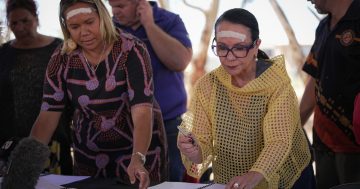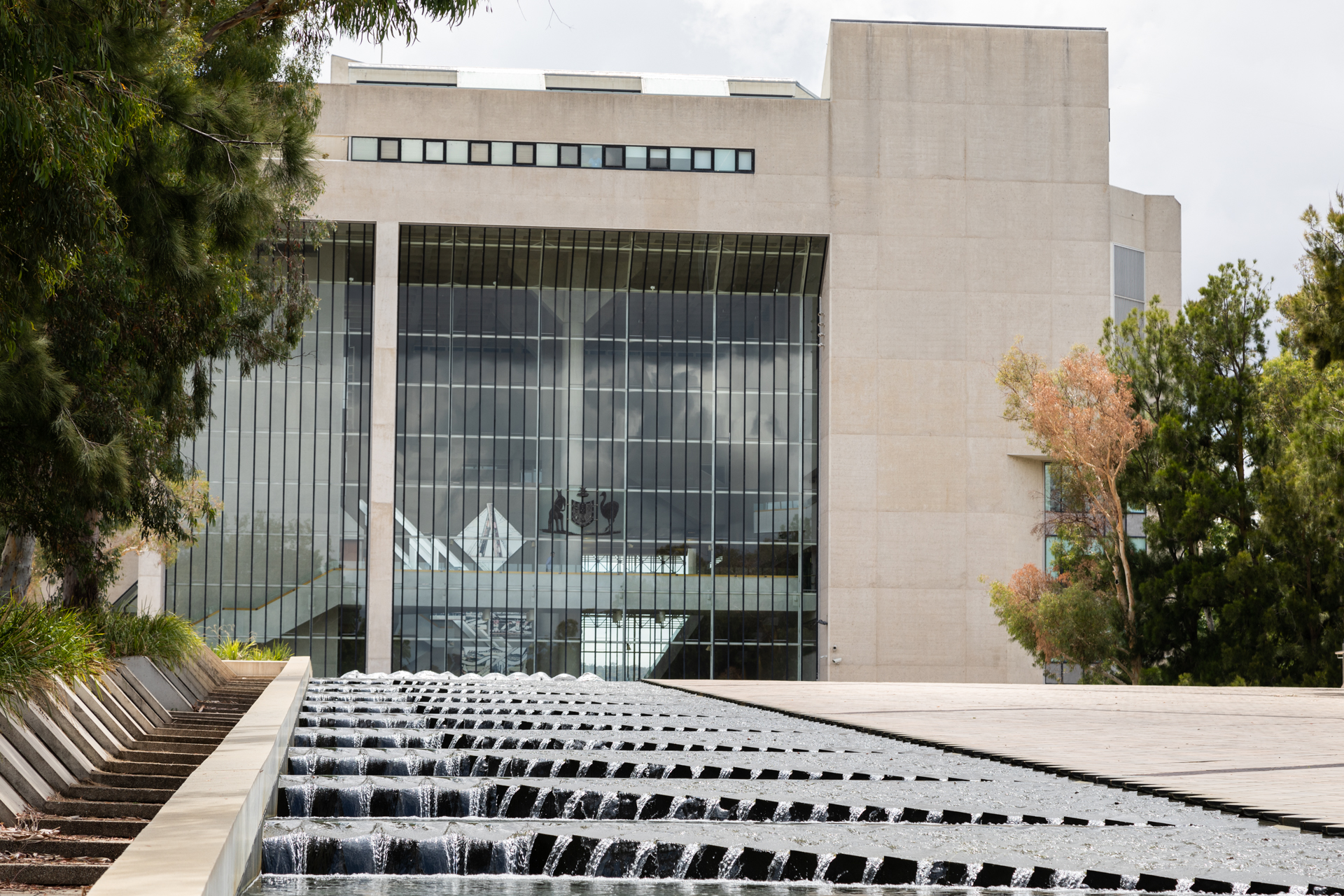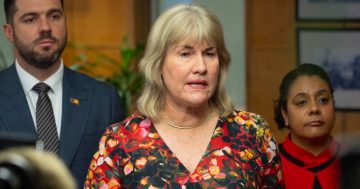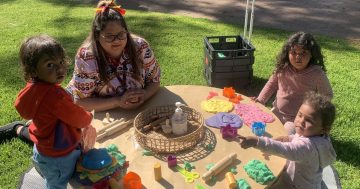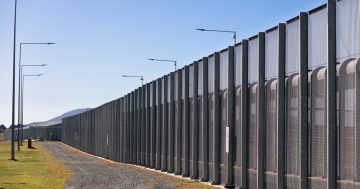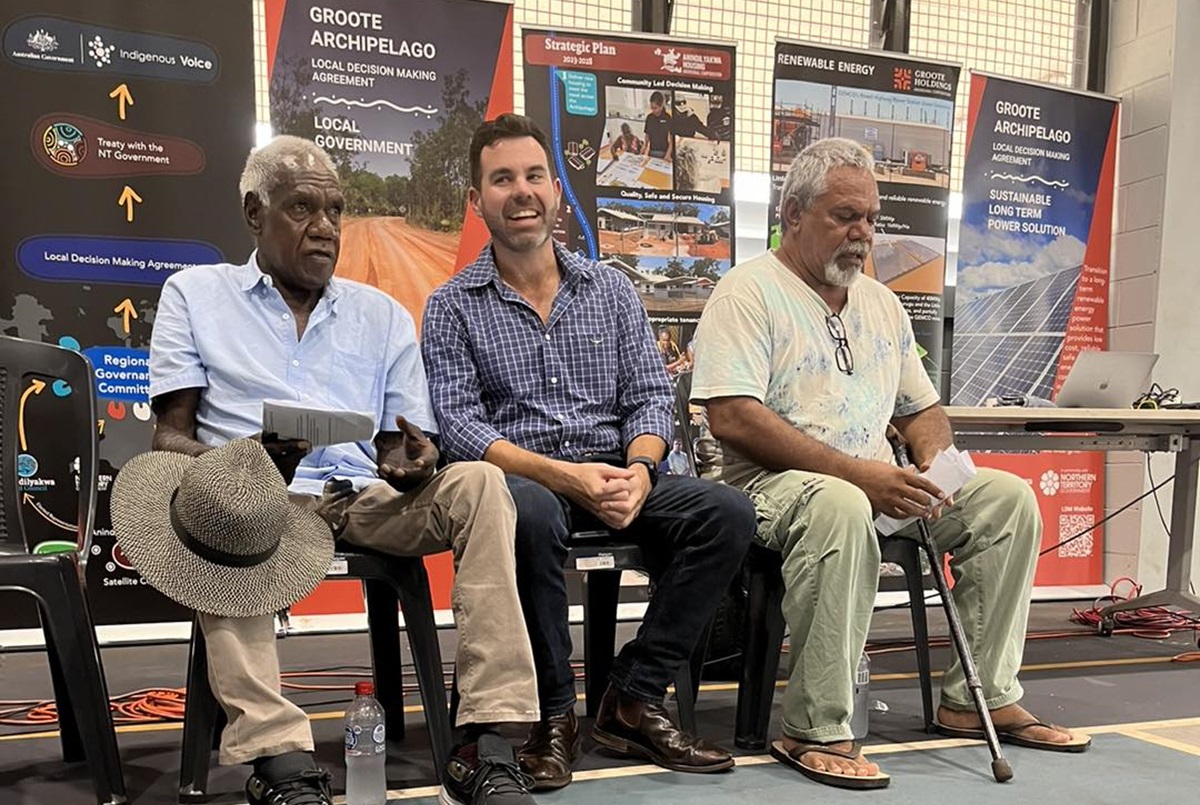
Territory Attorney General and Minister for Justice Chansey Paech (centre) with Anindilyakwa elders at the Anindilyakwa Healing Centre on 4 February. Photo: Chansey Paech Facebook.
Communities in the Groote Archipelago region of the Northern Territory have implemented new justice initiatives designed to give aboriginal communities a greater say in legal outcomes in the region.
Under the Territory Labor Government’s Aboriginal Justice Agreement (AJA) and the Groote Archipelago Local Decision Making Agreement, the three initiatives include an Alternative to Custody facility, a Community Court, and a Law and Justice Group.
The initiatives will be run through the Anindilyakwa Healing Centre for young men to provide culturally appropriate, community-based residential rehabilitation as an alternative to imprisonment. Each of the initiatives is designed to reduce offending and imprisonment rates, engage and support Aboriginal leadership, and to improve local justice responses and services.
The centre has been funded by the NT Government, Federal Government, the Anindilyakwa Land Council, and a philanthropic partner, and will be operated by Drug and Alcohol Services Australia (DASA).
The Territory Government has contributed $13 million over four years to the centre, including $11 million in operational funding. A Community Court and the Community Justice Group have also been established with the Territory Government delivering initial funding of $1.12 million over two years.
The first Community Court will be held in Angurugu in March following referrals from the Local Circuit Court in Groote Eylandt this month, while clients will also have access to the first 16-bed component from March.
Territory Attorney General and Minister for Justice Chansey Paech said the Aboriginal Justice Agreement was a progressive model of delivery that supported healthy, safe, resilient communities.
“The establishment of the Alternative to Custody facility, Community Court, and Law and Justice Group on Groote Eylandt are decisive steps towards delivering community-driven justice, and meeting the objectives of the AJA to reduce reoffending and imprisonment rates; engage and support Aboriginal leadership, and improve justice responses and services to Aboriginal Territorians,” he said.
“I look forward to seeing additional Alternative to Custody facilities delivered across the Territory, including a second site in Central Australia.”
Minister for Local Decision Making and Member for Arnhem Selena Uibo said the AJA was a tangible demonstration that local leaders could take back control of services and decisions to build stronger communities.
“Over five years into the agreement, measured progress against the commitments is strong with six implementation plans signed and significant progress in the transition to community control across education, housing, health and wellbeing, economic development, local government and law, justice and rehabilitation,” she said.
“I am very proud of the people across the Groote Archipelago who have worked hard to create stronger, safer communities,” she added. “Their efforts underscore the effectiveness and sustainability of locally-led justice solutions.
“The launch of these Aboriginal Justice Agreement initiatives in the Groote Archipelago enables the communities to build on the solid foundation of justice they have created.”
Anindilyakwa Land Council Chairman Tony Wurramarrba said, “The day has finally arrived for the 14 clans of this Archipelago to have a greater say in law and justice for our people.
“For too long now, we have watched mainly young Anindilyakwa men go back and forth to prison in Darwin,” he said. “This is a broken model and until now we have had no power to fix it. But that all changes now.”


